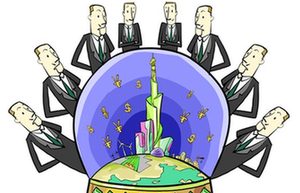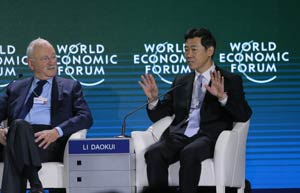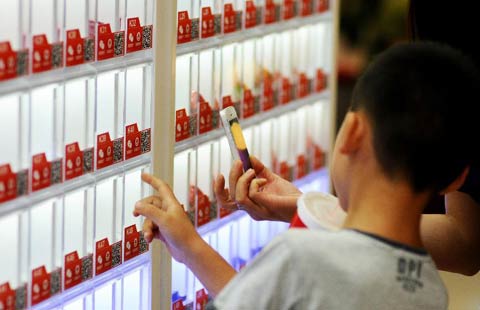Why we are forever blowing bubbles
By Zhu Ning (China Daily) Updated: 2014-09-15 09:31Second, there is excessive liquidity.
Economic historians point out that there is always unprecedented excessive liquidity behind every major economic bubble. The Netherlands, the United Kingdom, the US and Japan, each the world's strongest economies in their time, have all experienced bubbles and busts. That is partly because with fast expansion, policymakers engage in accommodative, if not lax, monetary policy. Also, with fast growth, international capital is pulled in, exacerbating the excessive liquidity.
So, too much money chases limited investment opportunities, which drives down the investment return of safe assets (such as the US Treasury rate during the 2007-09 US housing bubble), motivating investors to chase risky investments that promise higher returns. Many investors gradually lose their sense of risk aversion and greed takes over.
Short-term price increases further solidify investors' beliefs. They also give policymakers a false sense of confidence for further policy easing, which is easier than popping the bubble. That further strengthens the market's belief that government would not let the market crash, inducing even greater speculation.
 |
 |
The third ingredient is inexperienced investors.
Smith also shows that the more experience investors have, the less likely a bubble. If subjects in an experiment have never participated in the simulated market, a bubble is likely. However, if they have, then the scale and length of the bubble would be greatly reduced. In cases where all participants have participated in the experiment three times, there was no bubble at all.
Experience helps investors better perceive risks. Some US researchers found that those who lived through the Great Depression were less likely to participate in market mania such as the Internet or housing bubbles.
Why does that matter? If some investors foresee that the bubble might burst soon, they are likely to sell early. That may prompt others to worry about the sustainability of the bubble, inducing greater and earlier selling. So bubbles would burst earlier. Unfortunately, humans have short memories. Only a few years after the 2007-08 global financial crisis, people have already started to forget and are talking about a new round of stimulus and easing.
The fourth element is government support. Another astonishing fact is that the government's hands have been behind almost all bubbles. The government allowed excessive liquidity, providing a foundation for bubble development. Governments explicitly or implicitly supported or even encouraged bubbling asset prices. Government encouraged the taking of irresponsibly large risks by providing implicit guarantees.
In the middle of the tulip bubble, the Dutch government announced that for a small fee, tulip contracts could be invalidated. With such insurance-like policies, it provided peace of mind to speculative investors. The essence of such policies is very similar to the credit default swap contracts that directly contributed to the US housing bubble and subsequent market crash.
Finally, there is the role of finance.
Finance undoubtedly is a scapegoat after almost every financial crisis. Society blames the financial sector for creating excessive risks then abandoning basic moral standards in coercing the rest of society to bail it out after the bubble bursts.
Granted, capital markets have become far more powerful. However, the financial industry can be only as powerful as the degree to which their clients choose to ignore risks and accept the fantastic pitches of those who sell financial products.
The author is a faculty fellow at the International Center for Finance, Yale University, and deputy dean of the Shanghai Advanced Institute of Finance, Shanghai Jiao Tong University. Excerpts are included from the author's new book, "The Investors' Enemy". The views do not necessarily reflect those of China Daily.
- Alibaba kicks off Asia roadshow in HK
- Alibaba set for biggest IPO in history
- China's rooftop power generation surges despite challenges
- CNOOC reports first deepwater gas discovery in South China Sea
- China, Malaysia join hands in port partnership
- Shanghai FTZ senior official removed
- Urban farmers in China
- Beijing raises hiring standard for foreign employees
















